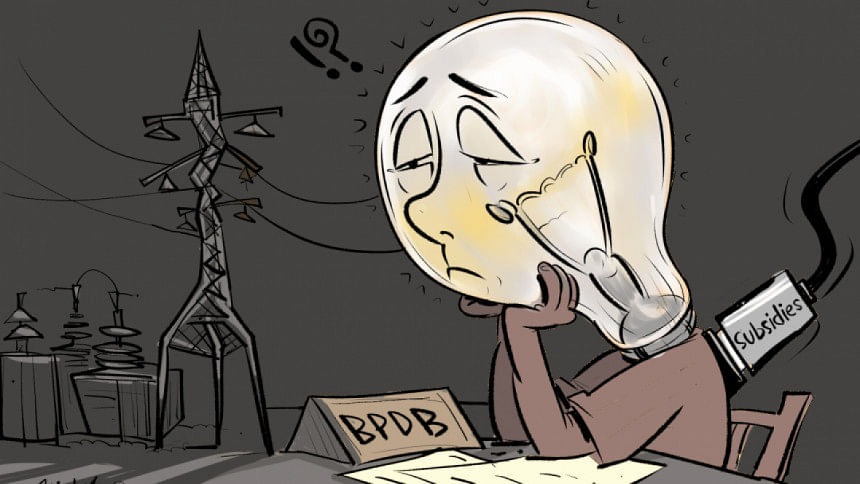Tuesday, 03/03/2026 | 19:00 GMT+7
A fundamental tenet of energy security is having a steady supply of energy at reasonable prices, according to the International Energy Agency. Between 2009 and 2024, Bangladesh primarily focused on scaling up power infrastructure, while efforts to develop energy resources fell short. The country’s exposure to the volatile international fossil fuel market increased during this time, leading to challenges in maintaining a steady energy and power supply. Soaring tariffs amid inflationary pressure in the last two years made energy less affordable to the low- and lower-middle-income groups.

The government’s efforts in the last one and a half decades contributed to economic growth; however, the road ahead is still bumpy.
The government’s efforts in the last one-and-a-half decades contributed to economic growth; however, the road ahead is bumpy, with fuel imports likely to spiral, which might worsen the country’s energy security.
At this time, it would be prudent to change the highly import dependent energy model. With different energy-consuming sectors providing significant energy efficiency (EE) opportunities, Bangladesh’s approach to accelerating energy security should include EE at its core. Going forward, enforcing EE policy instruments and creating a favourable ecosystem for them to thrive will be all-important to drive EE.
Bangladesh’s energy efficiency and conservation master plan up to 2030 shows viable EE and conservation potential of 21% and 28.8% in the industry and household sectors, respectively. However, a 10% efficiency gain on grid electricity consumption could lessen the country’s power demand between 1,500 megawatts (MW) and 1,700MW (based on day and evening peak power demands during April to July 2024). Demand management could offer a multitude of benefits, such as delay or lessen the investment in new and large fossil-fuel-based power plants, and minimise fossil fuel import bills on the back of reduced demand for power.
Usually, Bangladesh has competing priorities in the power sector. It feels the burgeoning pressure to consistently invest in incremental power generation capacity and to improve transmission and distribution (T&D) systems. As EE provides relief by delaying the immediate demand for capital-intensive and large fossil-fuel-based power plants, the country can use freed-up resources to bring down T&D losses. This investment appears timely, given that the country registered T&D losses of around 10.3% in fiscal year (FY) 2022-23 against the global average of less than 8%. IEEFA’s analysis concludes that a 1% improvement in T&D losses will reduce the country’s energy generation need by 884 gigawatt-hours (based on FY2022-23 data). This will help avoid oil import bills worth Bangladeshi Taka (Tk) 12.38 billion (US$106.3 million) per annum (assuming the average fuel cost of producing electricity from oil-fired plants is Tk14/kilowatt-hours).
Moreover, industries and households display a notable gas-saving opportunity. IEEFA’s study substantiated that EE in industrial captive power generation can reduce liquefied natural gas (LNG) import bills of US$460 billion per annum. EE in industrial processes demonstrates additional gas-saving potential. Likewise, due to billing systems for gas burners in most households not accounting for consumption quantity, people often exhibit wasteful gas consumption behaviour. If such behaviour is rectified through raising awareness, it could contain spiraling gas consumption and result in substantial national resource savings.
Energy-efficient refrigerators and air conditioners with inverters are already costlier than their counterparts without inverters. As the FY2024-25 national budget has imported higher minimum import duties on imported compressors that have inverters, consumers will find energy-efficient refrigerators and air-conditioners more expensive. The government should revisit the duty imposed on imported compressors with inverters and develop an ecosystem to encourage the use of efficient appliances. Once the country achieves adequate manufacturing capacity to meet local demand, the government could reimpose such duties.
If the country builds on its strong EE potential, it can reduce imported energy dependence and utilise monetary savings to upscale clean energy and enhance energy security. Further, higher energy prices make the investment in EE expedient.
According to ieefa.org







